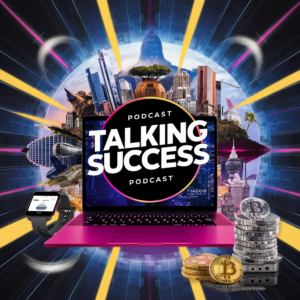Don’t underestimate the importance of the interview process.
The interview procedure may be tedious and time-consuming, but its use cannot be overstated. Interviews are essential to recruitment because they help you identify the right person for the job. Many candidates may look good on paper, but through the interview process, you get a feel for the candidate’s personality, ability to adapt, knowledge and expertise. But not all interviews are created equal. To get the most out of the interviewing process, you need to ensure that the process you employ will answer all your questions about the candidate’s ability to do the job and determine whether they will be a good fit for your company and culture. In this article, “How to Make the Most Out of Interviews”, you will learn just how to do so.
Asking the right questions
Essentially, you want to leave the interview feeling that you know what the candidate offers, such as their skills, abilities and basic knowledge, in terms of the job for which they are interviewing and who they are in terms of personality, character and interests. On the other hand, if you leave the interview feeling as if you don’t really know the candidate, you’ve not asked the right questions, or the interviewee has not given the appropriate responses. Of course, it could be a combination of both of these factors.
While the type of questions you ask will depend largely on the position, the candidate is applying for, the general rules of interviewing apply.
For example, ask targeted questions if you want to understand the candidate’s expertise. In the case of FinTech, you could ask the interviewee to give an example of a problem they encountered in their previous role and how they approached and solved the problem. These questions will give you an indication of how knowledgeable the candidate is of the field in which they are working, as well as how they approach and manage difficult situations.
More general questions, such as what the interviewee’s goals are for the future, may seem less significant than those questions that focus on expertise and skills, particularly in an environment like FinTech, where many employees are highly skilled. However, while skills and expertise are essential for growing your business, the people you employ must be able to fit into your company’s culture and work alongside your existing team. As mentioned in our previous ‘Building A FinTech Dream Team’ articles, your employees are your most valuable assets. If a candidate’s personality or goals are not aligned with those needed to make your business a success, it would be prudent to pass this candidate by, regardless of their skills or expertise. In other words, don’t think you can favour skills over adaptability or personality; if you do, one aspect of your business may suffer. It is also worth remembering that skills can be taught; of course, aptitude is essential, and there may be basic requirements of a position. However, you can always teach someone how to improve or perform how you want or need them to; you can’t change the basics of a person’s personality, and a bad fit now may be a bad fit for many years to come.
The interview is only as good as the interviewer.
Sometimes, you may ask all the right questions, and the candidate may respond appropriately to each question, but you still feel as if you don’t really know the candidate – This is because an interview is only as good as the interviewer; interviewing someone requires a special kind of skill that is not in everyone’s repertoire. You may be able to analyze a candidate and their responses easily, but for many others, it is difficult to determine whether a candidate is suitable or unsuitable for the job. Some people, for example, interview very well but fall short when it comes to actual delivery after being employed. Suppose you find it difficult to sort these kinds of candidates from others. In that case, you need to consider using the help of someone who can be involved in the interviewing process to assist you in determining which candidates are most suitable.
Most business owners can determine whether someone has expertise; if you ask a technical question and get a suitable response, chances are that the candidate knows what they are talking about. (Of course, it may become apparent as you ask more technical questions that their knowledge is limited.) However, determining whether somebody will be a good fit for your business may be more difficult. Remember that candidates always put their best foot forward because their goal is to be offered the job. They want you to believe that they will fit in well with your company, and with everyone having an online presence these days, it’s likely that the serious candidates have done some research on your company and know more or less what the company culture is. This does not imply that candidates are disingenuous in presenting their best selves to you, but it does mean that you need to examine each candidate with a fine-toothed comb. If this is not your forte, you are better off getting someone who can do this for you. This may cost you more than simply doing it yourself, but hiring the right talent from the get-go will save you a lot of money in the long term.
Ultimately, interviewing is one of the first steps to finding the right talent for your business. Of course, there may be many interviews, and it doesn’t all begin and end with a single interaction. But set yourself up for success in this process from the start, and ensure that every question you ask has a purpose: don’t waste your time pursuing someone who turns out, after the fifth interview, not to be the person you need to grow your business.






